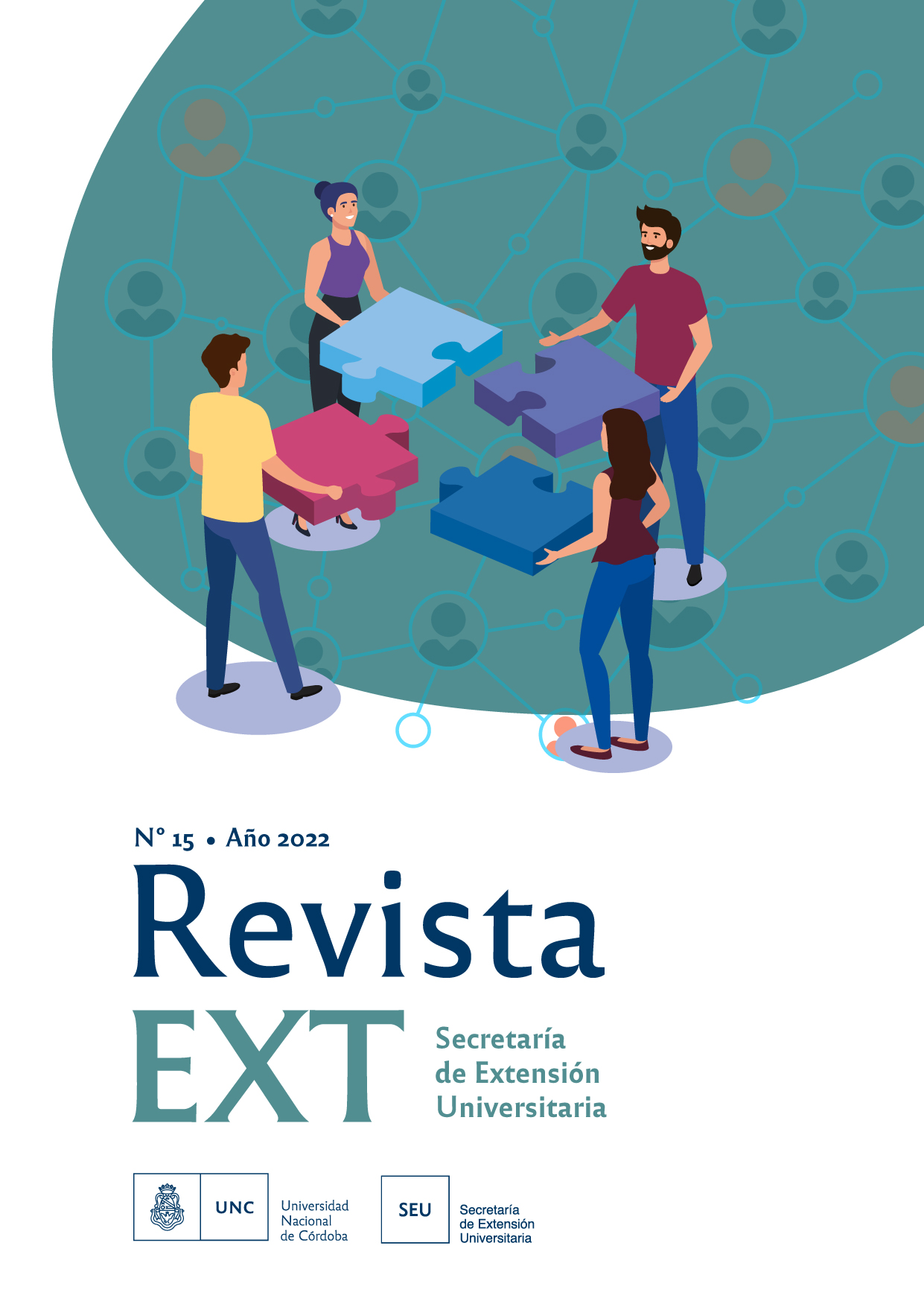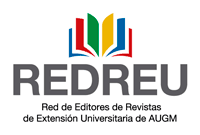Experience of child participation from the community approach in the context of a pandemic
Keywords:
participation, community, childhood, pandemicAbstract
DDuring the year 2021, within the framework of University Extension Grants, we carried out the project titled “Strategies for a community approach to the psychosocial effects of the pandemic on children in a rural context”, in coordination with the Soup kitchen and Popular Library “Caritas Felices” from Ampliación Los Troncos neighbourhood, Monte Cristo, a city located 25 kms away from Córdoba city. Framed within the rights approach and the Community Social Psychology paradigm, we worked on the co-construction of a meeting place with children between 5 and 11 years old. Therefore, the working methodology was the Participatory and Participant Action Research. This methodology, in its ethical-political dimension, promotes the active participation of a community for the transformation of their most felt needs. In the second year of a global pandemic, our goal was to strengthen the community approach strategies to deal with the psychosocial effects of the COVID-19 on children from rural contexts. By doing so, we would recover the political capacity of participation, promoting child protagonism, which facilitates the elaboration of their process of subjectivation and the processing of adverse situations.
Downloads
References
-Barrault (2008) Psicología Comunitaria y Espacios de Encuentro: Una lectura desde la subjetividad. Cátedra EIC. Facultad de Psicología.UNC
- Barrio Galaxia Manual de Comunicación Comunitaria. (2000) Programa de Desarrollo de Recursos de Comunicación de Organizaciones Sociales del Centro Nueva Tierra. Bs. As. Argentina
-Bustelo (2007) El recreo de la infancia. Argumentos para otro comienzo. Buenos Aires: Siglo XXI Ed Argentina.
-Cybel (2021) Todo episodio traumático colectivo deja alguna huella, aún cuando se intente borrar. en El grito del sur
- Espino Chang, S. y Ojeda Henriquez, K. (2013). Adultocentrismo y ciudadanía infantil. Dos discursos en conflicto para la convivencia. CLACSO
-Ley de Protección Integral de los Derechos de Niños, Niñas y Adolescentes Nº 26.061. (2005).
- Magistris y Morales (2018). Niñez en movimiento. Del adultocentrismo a la emancipación. Ed. El Colectivo, Chirimbote, Ternura Rebelde.
-Magistris y Morales (2021) Educar hasta la ternura siempre: del adultocentrismo al protagonismo de las niñeces. Ed. Chirimbote, Ternura Rebelde
-Montero (2006) Cap5.La Investigación Acción Participativa: Orígenes, definición y fundamentación epistemológica y teórica. Editorial Paidós.
-Rinero, Russo, Vergara (2019) ¡Tenemos derechos!La dimensión política de la participación de las infancias. PPP, Facultad de Psicología, UNC
- Roa (2017) Juventud rural y subjetividad : la vida entre el monte y la ciudad / Ciudad Autónoma de Buenos Aires : Grupo Editor Universitario. Clacso
-UNICEF (2021) Análisis de Situación de la Niñez y Adolescencia en Argentina 2020.
-Torres Velázquez (2021) El pensamiento crítico infantil latinoamericano ante la pandemia. CLACSO
Downloads
Published
Issue
Section
License

This work is licensed under a Creative Commons Attribution-NonCommercial-ShareAlike 4.0 International License.
Aquellos autores/as que tengan publicaciones con esta revista, aceptan los términos siguientes:
- Los autores/as conservarán sus derechos de autor y garantizarán a la revista el derecho de primera publicación de su obra, el cuál estará simultáneamente sujeto a la Licencia de reconocimiento de Creative Commons que permite a terceros compartir la obra siempre que se indique su autor y su primera publicación esta revista.
- Los autores/as podrán adoptar otros acuerdos de licencia no exclusiva de distribución de la versión de la obra publicada (p. ej.: depositarla en un archivo telemático institucional o publicarla en un volumen monográfico) siempre que se indique la publicación inicial en esta revista.
- Se permite y recomienda a los autores/as difundir su obra a través de Internet (p. ej.: en archivos telemáticos institucionales o en su página web) después del proceso de publicación, lo cual puede producir intercambios interesantes y aumentar las citas de la obra publicada. (Véase El efecto del acceso abierto).





